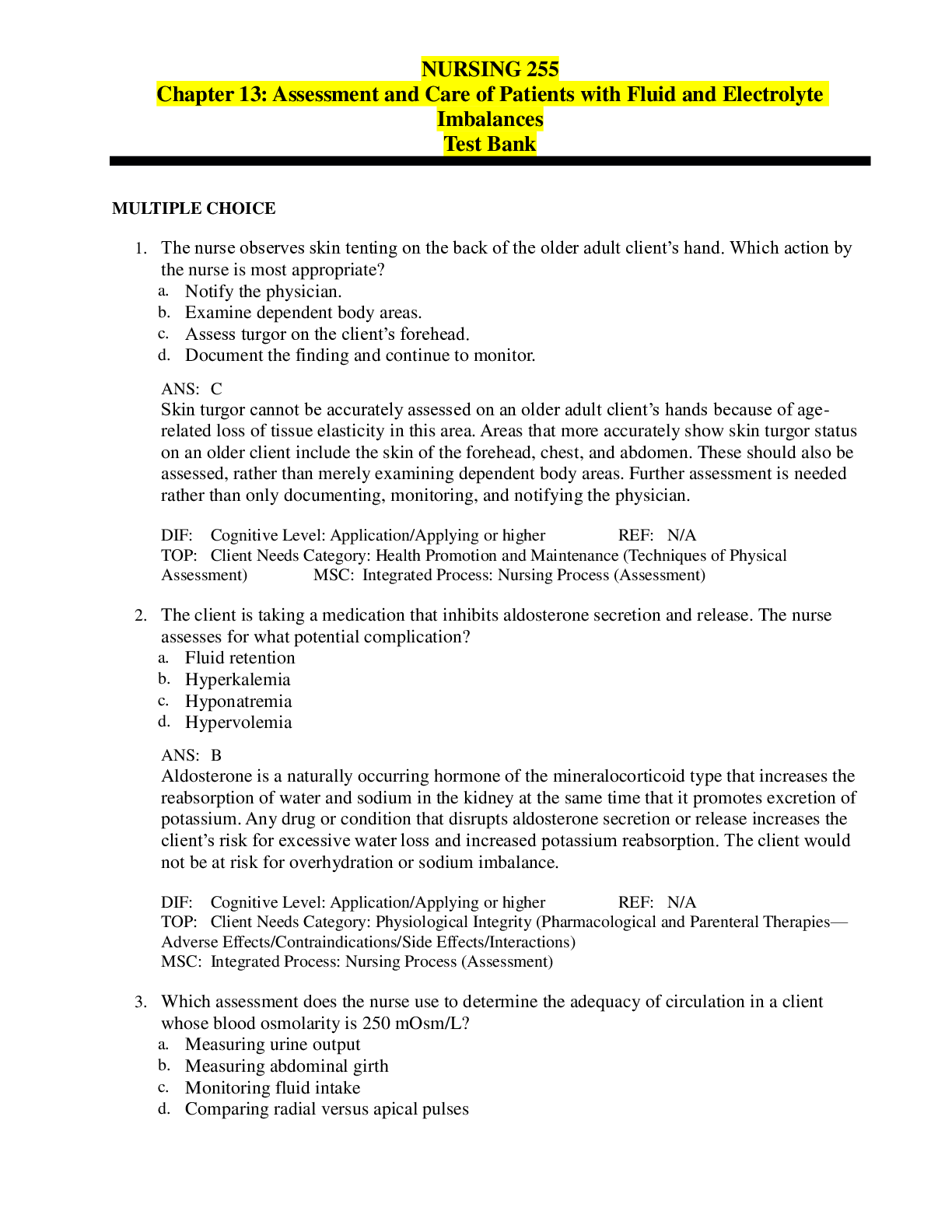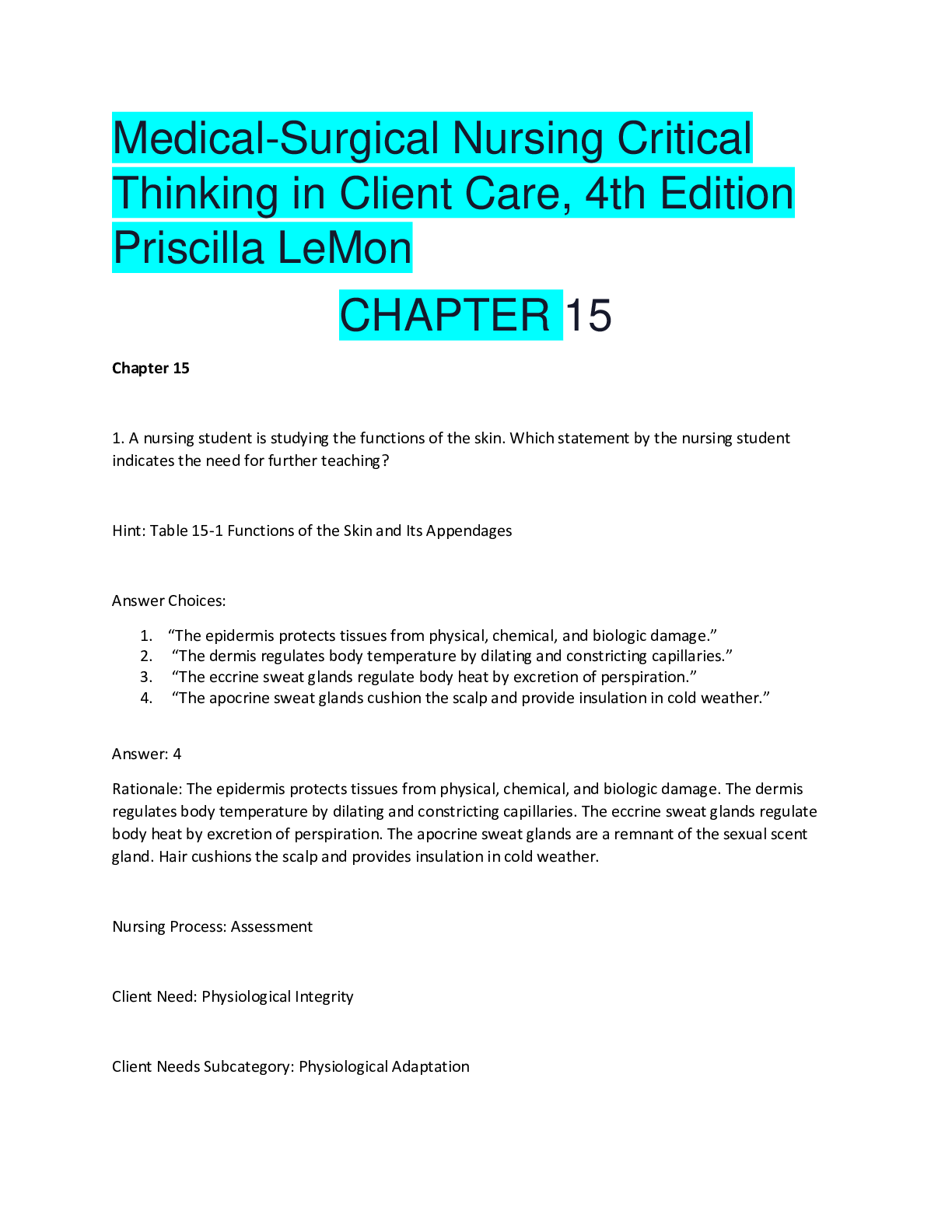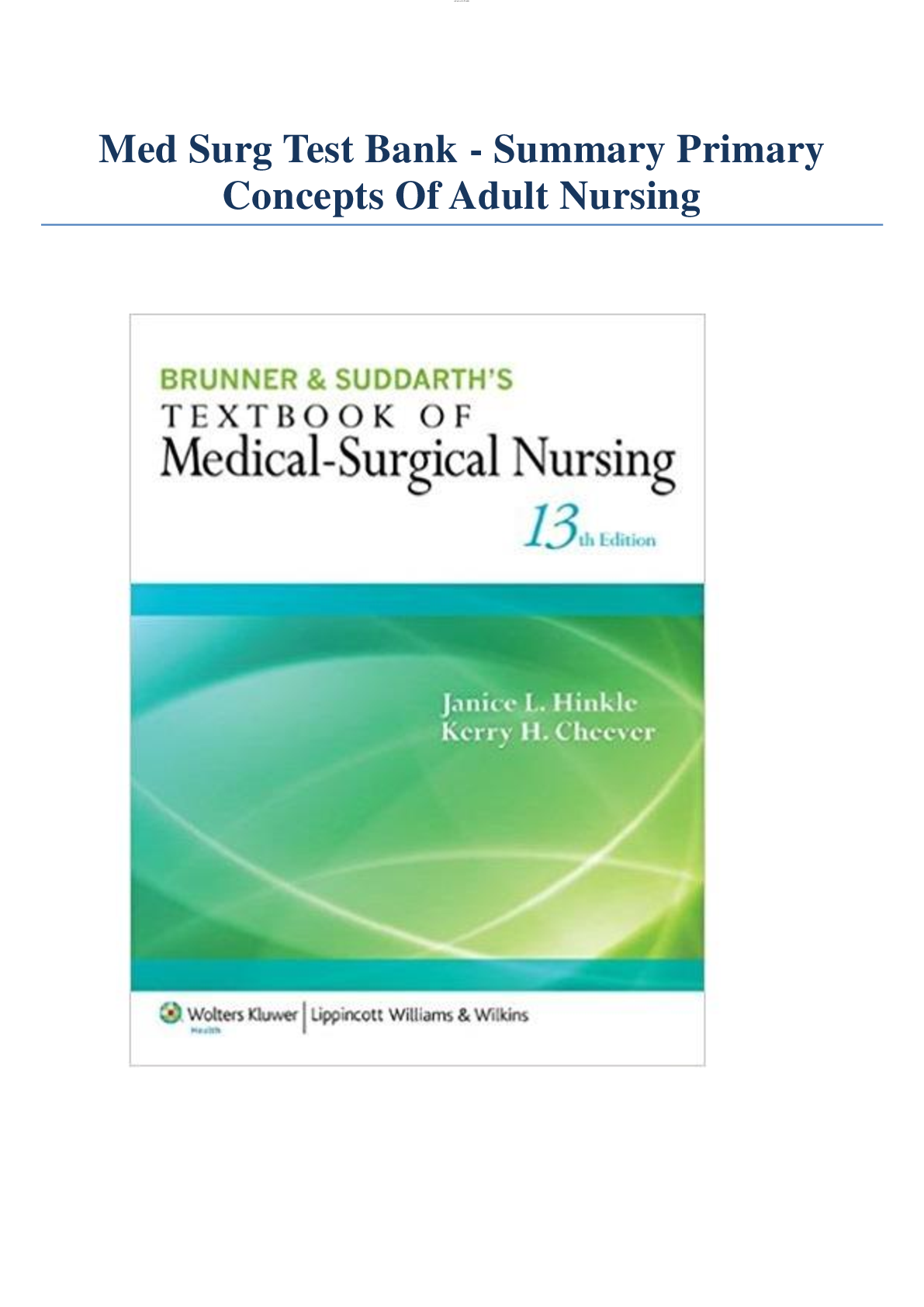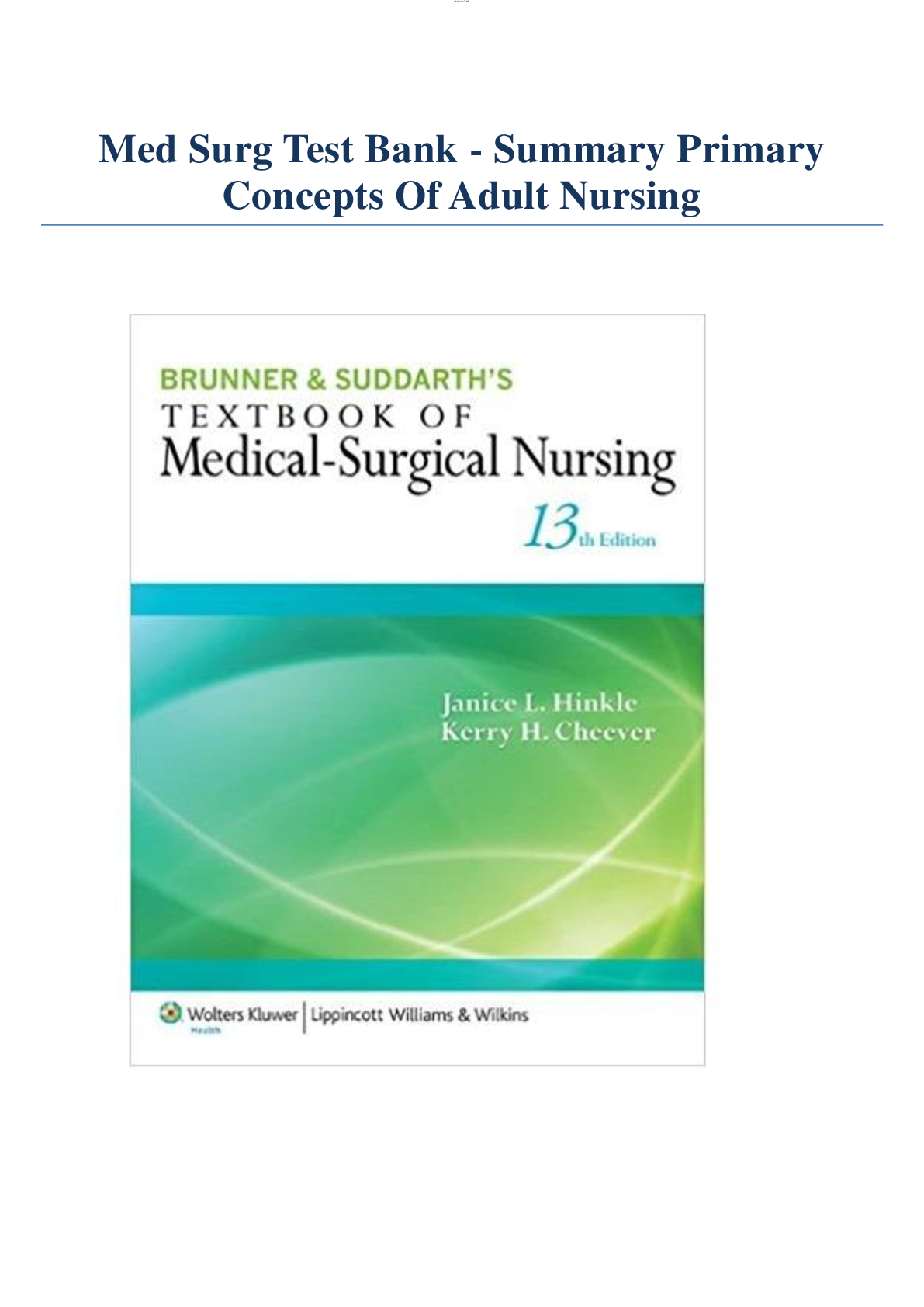*NURSING > QUESTIONS & ANSWERS > ATI Adult Nursing (NUR 105) Med Surg test Latest Verified Questions and all Correct Answers with Exp (All)
ATI Adult Nursing (NUR 105) Med Surg test Latest Verified Questions and all Correct Answers with Explanations Chapter 54: Management of Patients with Kidney Disorders Graded A, Latest Questions and Answers with Explanations, All Correct Study Guide, Download to Score A
Document Content and Description Below
ATI Adult Nursing (NUR 105) Med Surg test Latest Verified Questions and all Correct Answers with Explanations Chapter 54: Management of Patients with Kidney Disorders Graded A, Latest Questions and An... swers with Explanations, All Correct Study Guide, Download to Score A Management of Patients with Kidney Disorders 1. The nurse is assessing a patient suspected of having developed acute glomerulonephritis. The nurse should expect to address what clinical manifestation that is characteristic of this health problem? 2. The nurse is caring for acutely ill patient. What assessment finding should prompt the nurse to inform the physician that the patient may be exhibiting signs of acute kidney injury (AKI)? 3. The nurse is caring for a patient with a history of systemic lupus erythematosus who has been recently diagnosed with end-stage kidney disease (ESKD). The patient has an elevated phosphorus level and has been prescribed calcium acetate to bind the phosphorus. The nurse should teach the patient to take the prescribed phosphorus-binding medication at what time? 4. The nurse is working on the renal transplant unit. To reduce the risk of infection in a patient with a transplanted kidney, it is imperative for the nurse to do what? 5. The nurse is caring for a patient receiving hemodialysis three times weekly. The patient has had surgery to form an arteriovenous fistula. What is most important for the nurse to be aware of when providing care for this patient? 6. A patient has a glomerular filtration rate (GFR) of 43 mL/min/1.73 m2. Based on this GFR, the nurse interprets that the patients chronic kidney disease is at what stage? 7. A football player is thought to have sustained an injury to his kidneys from being tackled from behind. The ER nurse caring for the patient reviews the initial orders written by the physician and notes that an order to collect all voided urine and send it to the laboratory for analysis. The nurse understands that this nursing intervention is important for what reason? 8. A patient admitted with nephrotic syndrome is being cared for on the medical unit. When writing this patients care plan, based on the major clinical manifestation of nephrotic syndrome, what nursing diagnosis should the nurse include? 9. The nurse coming on shift on the medical unit is taking a report on four patients. What patient does the nurse know is at the greatest risk of developing ESKD? 10. The nurse is caring for a patient postoperative day 4 following a kidney transplant. When assessing for potential signs and symptoms of rejection, what assessment should the nurse prioritize? [Show More]
Last updated: 2 years ago
Preview 1 out of 41 pages
 Med Surg test Latest Verified Questions and all Correct Answers with Explanations Chapter 54 Management of Patients with Kidney Disorders.png)
Buy this document to get the full access instantly
Instant Download Access after purchase
Buy NowInstant download
We Accept:

Reviews( 0 )
$18.00
Can't find what you want? Try our AI powered Search
Document information
Connected school, study & course
About the document
Uploaded On
May 02, 2021
Number of pages
41
Written in
Additional information
This document has been written for:
Uploaded
May 02, 2021
Downloads
0
Views
108
, Latest Questions and Answers with Explanations, All Correct Study Guide, Download to Score A.png)


 Questions and Answers (latest Update), All Correct, Download to Score A.png)





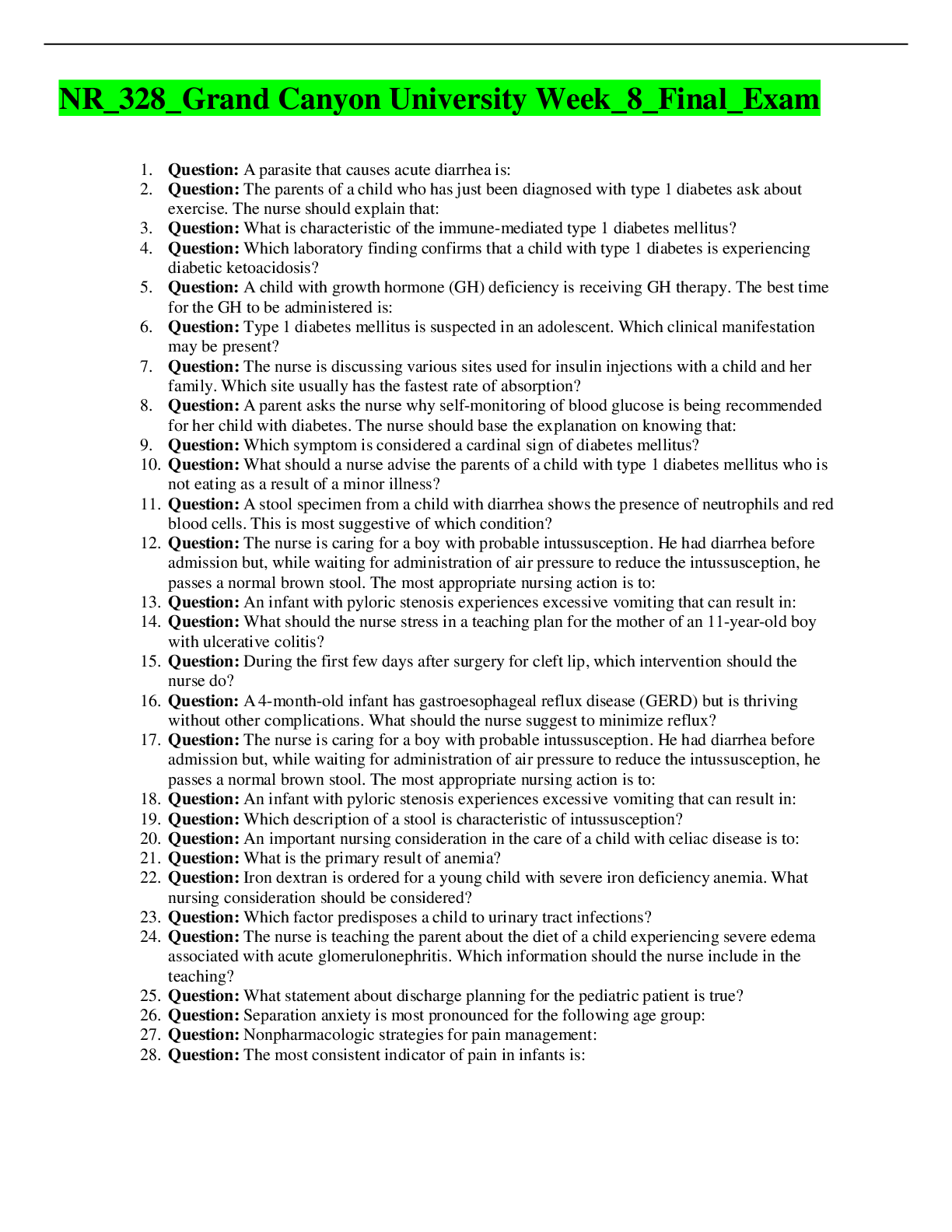
, (A Grade), Questions and Answers, All Correct Study Guide, Download to Score A.png)
, Questions and Answers, All Correct Study Guide, Download to Score A.png)
, Latest Questions and Answers with Explanations, All Correct Study Guide, Download to Score A.png)


